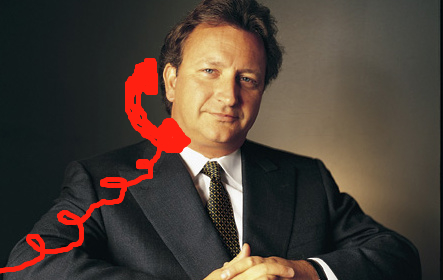(AP Photo/Richard Drew)
On Saturday, Alex Rodriguez was officially suspended for the 2014 season under the process established by MLB’s Joint Drug Prevention and Treatment Program. On Sunday, the long-running news program 60 Minutes aired an interview with Tony Bosch, founder of the Biogenesis clinic – the organization at the center of MLB’s 2013 drug suspensions. Among other embarrassing allegations, Bosch claimed he personally injected Rodriguez with PEDs. It was not a good weekend for A-Rod.
The 60 Minutes episode also featured interviews with MLB Commissioner Bud Selig and Chief Operating Officer Rob Manfred. It would have been the perfect opportunity to ask some skeptical questions about how far MLB has gone to punish Rodriguez and other players implicated in the Biogenesis affair. At the very least, a shrewd journalist might not have uncritically accepted Selig and Manfred as noble guardians of baseball’s integrity. Unfortunately (although not surprisingly), 60 Minutes perpetuated the simplistic narrative that has characterized this whole sordid business, i.e., “A-Rod and PED users are the bad guys, and even if Tony Bosch is unreliable, the ends justify the means in MLB’s Drug War.”
Reporter Scott Pelley’s first question to Bosch is, “What were the various banned substances [Rodriguez] was taking?” We then hear about all the legwork that goes into creating a PED regimen that won’t be detected by random testing. The anecdote about Bosch drawing Rodriguez’s blood in a Miami nightclub is certainly salacious, as are the text messages between the two specifying exactly when PEDs should be administered.
Pelley does acknowledge that Bosch’s story has changed over the months, but the first segment of the report is primarily a catalogue of Rodriguez’s transgressions. For the first few minutes of the report, Pelley does not challenge Bosch much, other than to express dismay at Bosch’s peculiar notion of fair play. After Bosch claims to be a baseball fan, Pelly asks in affected high dudgeon, “How could you love the game of baseball and do this to the game?” He may as well have said, “Drugs are bad, m’kay.”
After a commercial break, there is hope that MLB’s Drug War itself will actually come in for a little scrutiny when Pelley says, “The league’s investigation was more FBI than MLB, but baseball commissioner Bud Selig told us this was a battle to save the game.” Then we finally get to hear about some of the sleazy, strong arm tactics used in the Biogenesis case…that is, those allegedly carried out by Rodriguez and his associates. MLB’s behavior in the matter is eventually raised by Rodriguez’s lawyer Joe Tacopina – the only person during the 60 Minutes episode that’s clearly put on the defensive.
Once the report shifts to MLB’s actions, Pelly says, “Selig told [Manfred] to do what he had to do to get to the bottom of the scandal” and the fact MLB hired retired FBI agents and the former director of the Secret Service for its investigation is passed along without comment. One of the most, shall we say, dubious acts MLB engaged in was paying $125,000 for Biogenesis documents provided by an anonymous source. When Manfred acknowledges the payoff, Pelley asks whether MLB can be sure about the documents’ authenticity – and notably does not question the ethics of the payoff itself.
Similarly, when MLB’s specious lawsuit against Biogenesis comes up, Pelley seems primarily interested in how it implicates Bosch’s credibility: “You say you can't pay [Bosch] to be a witness, but you're paying for his security guards, you're paying for his lawyers, and you're dropping your lawsuit. Haven't you given him every incentive to tell you what you want to hear? Every incentive for him to lie?”
As HardballTalk’s Craig Calcaterra has pointed out, MLB’s lawsuit enabled them to obtain information most people and institutions do not have access to, including the aforementioned text messages. Federal Express, AT&T Mobility, T-Mobile USA, UPS, and MetroPCS were all issued subpoenas and some turned over data. And yet Pelley’s main concern was that Bosch might not have been completely forthright, thus hampering MLB’s mission. It’s basically accepted at face value that MLB’s manipulation of the legal system was just Manfred doing what he had to do.
Even if we as fans recognize that Rodriguez and the other 13 players are cheaters who used PEDs, we do not have to condone the way the evidence against them was obtained – and we are being poorly served by a media establishment that has little interest in holding MLB accountable for its actions. Pelley closes his report by saying, “Bud Selig has announced his retirement as the commissioner of baseball. Part of his legacy is the toughest anti-doping rules in all of American pro sports.”
Perhaps Selig’s legacy for toughness would be complicated if influential reporters were less willing to give tacit approval, and more willing to question how MLB fights its Drug War.
Add The Sports Daily to your Google News Feed!
